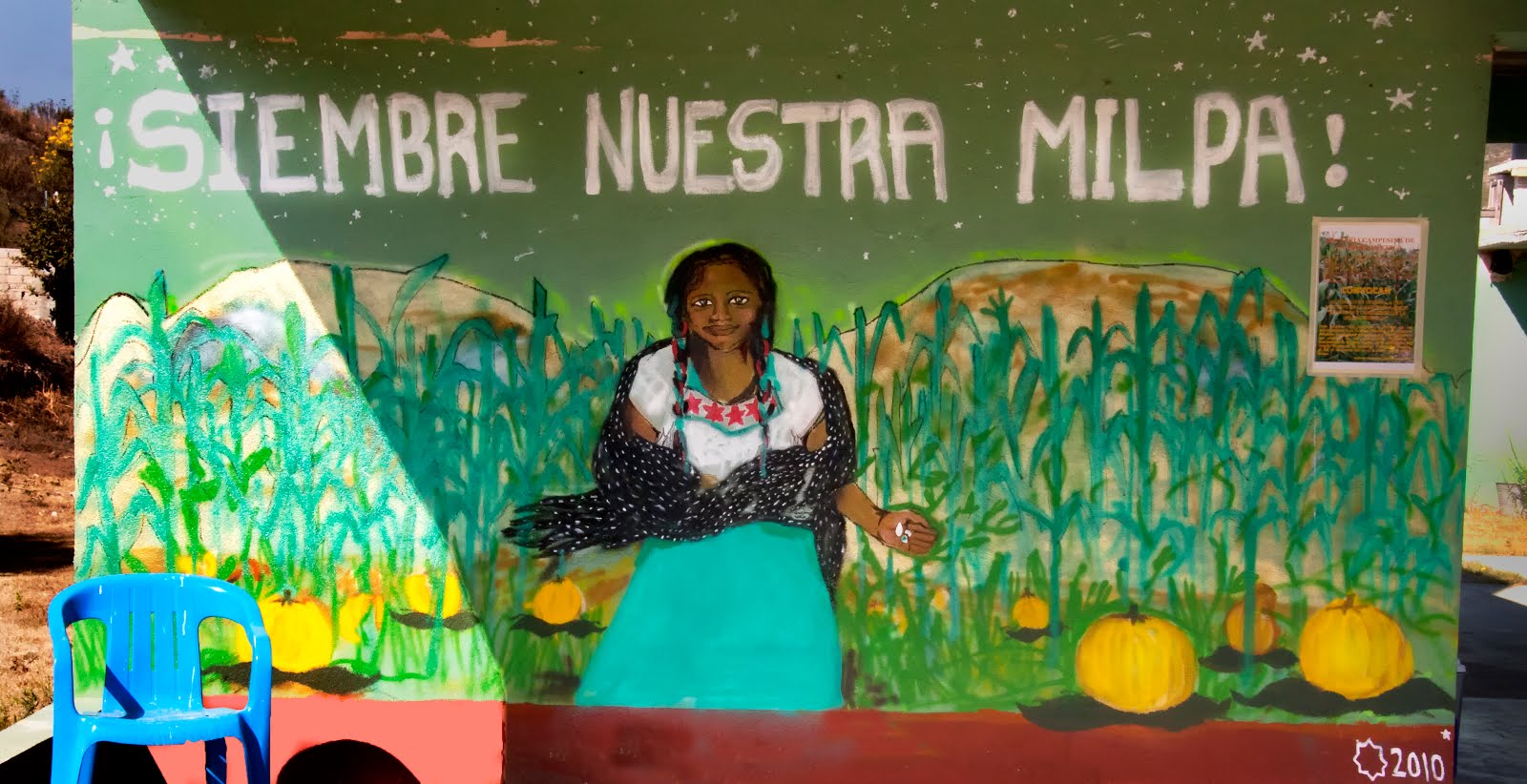As in most indigenous communities of Oaxaca, here there are two parallel governments, the municipal and the Commission of “Bienes Comunales”, or communal goods. As the name indicates, it is the responsibility of the Commission of Communal Goods to regulate the use of the forests, grazing lands, and, when appropriate, agricultural lands that families have abandoned, in the name of the community. All of this is the commons of Tilantongo. The Director and Vigilance Committee of bienes comunales are democratically elected in town meetings of the entire pueblo of Tilantongo, including its 17 different communities. For any major decisions the entire pueblo needs to be convoked to approve or disapprove. Meanwhile, it is the task of the director and bienes comunales committee to regulate and manage the common resources of the village, approving permits for harvesting trees for building and firewood, and medicinal plants, for use of gravel and sand, water, and minerals, as well as for fining abuses. Although the serious deforestation that marks the post-conquest history of Tilantongo is testimony to lapses and abuses of the trust placed in the commission of common goods, the system has and continues to successfully govern the commons of Tilantongo and hundreds of other indigenous communities of the state of Oaxaca.
Hope for a Beleaguered Planet....
Our book Milpa: From Seed to Salsa - Ancient Ingredients for a Sustainable Future explores through a blend of essays, recipes and documentary photography how the ancient agricultural knowledge and the wealth of 1000 year-old seeds and planting practices still in use among the Mixtec peoples of southern Mexico can help us to meet the ecological and food crises of today.
The essays, written in conjunction with campesino farmers, serve as a warning about the complicated dangerous effects inherent in the rapidly expanding distribution of GMO (genetically modified organism) seeds in Mexico, the birthplace of corn. Our documentary cookbook discusses alternatives for campesino farmers across the world and gardeners and consumers who care about food safety. Using the example of the Milpa planting system in the Mixteca Alta region of Southern Mexico just north of Oazaxa City, the book supports recent studies by UN investigators that show that small plots of land, heritage seeds and sustainable practices can in fact feed the world while enriching the soils on which we all depend for life…….
Milpa contains the traditional recipes lovingly shared by the local indigenous Mixtec women, allowing readers to re-create the culinary magic that flows from this ancient agricultural system. Recipes are painstakingly tested and photographed in traditional indigenous kitchens as well as in a professional modern test kitchen. Please purchase the book, below.....
All Rights Reserved: © Phil-Dahl Bredine, © Kathy Dahl-Bredine © Judith Cooper Haden Photography, © Susana Trilling SOMH.
Monday, September 3, 2012
Our Democratic Commission of Communal Goods
As in most indigenous communities of Oaxaca, here there are two parallel governments, the municipal and the Commission of “Bienes Comunales”, or communal goods. As the name indicates, it is the responsibility of the Commission of Communal Goods to regulate the use of the forests, grazing lands, and, when appropriate, agricultural lands that families have abandoned, in the name of the community. All of this is the commons of Tilantongo. The Director and Vigilance Committee of bienes comunales are democratically elected in town meetings of the entire pueblo of Tilantongo, including its 17 different communities. For any major decisions the entire pueblo needs to be convoked to approve or disapprove. Meanwhile, it is the task of the director and bienes comunales committee to regulate and manage the common resources of the village, approving permits for harvesting trees for building and firewood, and medicinal plants, for use of gravel and sand, water, and minerals, as well as for fining abuses. Although the serious deforestation that marks the post-conquest history of Tilantongo is testimony to lapses and abuses of the trust placed in the commission of common goods, the system has and continues to successfully govern the commons of Tilantongo and hundreds of other indigenous communities of the state of Oaxaca.




